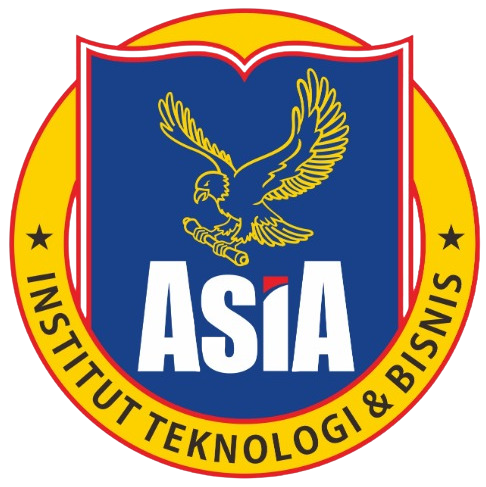Interaction Between Investment, Exports, Human Development Index, Technology, and Corruption on Economic Growth of ASEAN Countries
DOI:
https://doi.org/10.32815/jibeka.v19i2.2365Keywords:
Corruption, Human Development Index, Macroeconomics, Economic growth, TechnologyArticle Metrics
Abstract
This study aims to analyse the impact of foreign direct investment, exports, the human development index, technology, and corruption on economic growth in ASEAN. This quantitative analysis employs panel data regression to identify the variables affecting economic growth in ASEAN. This study encompasses ten ASEAN countries: Brunei Darussalam, Indonesia, Cambodia, Malaysia, Singapore, Thailand, Vietnam, the Philippines, Myanmar, and Laos, covering the period from 2010 to 2023. This study's results demonstrate that foreign direct investment, exports, the human development index, and technology significantly and positively influence economic growth in ASEAN. Corruption does not significantly impede economic growth within ASEAN. The variables of foreign direct investment, exports, the human development index, technology, and corruption collectively exert a significant influence on economic growth in ASEAN. This study introduces technology as a significant influencing variable. The ASEAN government persists in upholding stability and enhancing the national economy. The government must implement decisive measures in state security and enhance transparency to prevent an increase in state corruption. Further research should focus on broadening the variables associated with economic growth and employing diverse methodologies.
Downloads
References
Abdullah, R. T., & Husain, A. J. (2022). The Effect Of Export On Economic Growth In Iraq For The Period Of (2004-2019). Journal of Kurdistani for Strategic Studies, 7, 157–171. https://doi.org/10.54809/jkss.vi7.200
Adinda, S. Z., Yusrizal, & Harahap, M. I. (2023). The Effect of Inflation on Economic Growth in Tanzania. Contemporary Research: An Interdisciplinary Academic Journal, 6(1), 72–93. https://doi.org/10.3126/craiaj.v6i1.55377
Amalia, R. F., & Hasmarini, M. I. (2024). Analisis Pengaruh Keterbukaan Ekonomi Terhadap Pertumbuhan Ekonomi Di 6 Negara ASEAN Periode 2018-2022. 18(2), 1318–1329.
Canbay, Ş. (2020). Investigation of the Effect of Turkey’S High-Tech Exports on the Economic Growth Using the Structural Break Ardl Bounds Testing. Elektronik Sosyal Bilimler Dergisi, 74, 855–868. https://doi.org/10.17755/esosder.657480
Christos, P., Zacharias, D., Dimitrios, K., & Athanasios, A. (2024). Corruption Perception Index (CPI) in European countries: Monitoring with GIS. Theoretical Economics Letters, 14(01), 184–202. https://doi.org/10.4236/tel.2024.141010
Emeka, I. (2024). Foreign Direct Investment and Economic Growth in Nigeria. Journal of Poverty, Investment and Development, 26(2), 37–48. https://doi.org/10.9734/ajpas/2024/v26i2590
Eva, R. F., Filloza, N. Z., Ekaputri, R. A., & Pasaribu, E. (2023). Do Corruption, Financial Deepening, and Inflation Drive Economic Growth in Sumatra? Jurnal REP (Riset Ekonomi Pembangunan, 8(2), 2023. https://doi.org/10.31002/rep.v8i2.1096
Ghislandi, S., Sanderson, W. C., & Scherbov, S. (2018). A Simple Measure of Human Development : The Human Life Indicator. Population and Development Riview, 0, 1–15. https://doi.org/10.1111/padr.12205
Haldi, M., & Fuddin, M. K. (2024). Does Corruption, Unemployment, and Investment Affect Economic Growth in ASEAN-9. Economics Development Analysis Journal, 13(1), 84–108.
Handayani, T., Aprilia, R. T., Widaningsih, O., Kesuma, F. N., & Jumansyah, R. (2021). Information Technology on Economic Growth and Stability. FIRM Journal of Management Studies, 6(2), 153. https://doi.org/10.33021/firm.v6i2.1560
Hazmi, R. A. Al. (2024). Pengaruh Kemiskinan Dan Korupsi Terhadap Pertumbuhan Ekonomi Indonesia. Jurnalku, 4(1), 1–10.
Kurniawan, D., & Hayati, T. P. T. N. (2015). Penerapan Model Solow-Swan Untuk Memacu Pertumbuhan Ekonomi Kabupaten Demak. 30(1), 68–75.
Lutfi, A. F., Zainuri, & Diartho, H. C. (2020). Impact Corruption on Economic Growth: A Case Study of 4 Countries in ASEAN. VII(1995), 30–35.
Matušovičová, M., & Matušovičová, S. (2023). The Impact of Foreign Direct Investment Management on Economic Growth Using Multiple Linear Regression (MLR). TEM Journal, 12(4), 2326–2332. https://doi.org/10.18421/TEM124-44
Nababan, F. A., & Armelly. (2024). The Impact of Labor, Investment, and Human Development Index on Economic Growth: A Study of East Kalimantan Province. EKOMBIS REVIEW: Jurnal Ilmiah Ekonomi Dan Bisnis, 12(1), 797–804. https://doi.org/10.37676/ekombis.v12i1.5061
Nairobi. (2021). Corruption and Economic Growth at Province Levels in Indonesia. Jejak, 14(2), 288–295. https://doi.org/10.15294/jejak.v14i2.25996
Nastiti, G., & Saepudin, T. (2023). Analisis Faktor-Faktor Yang Mempengaruhi Pertumbuhan Ekonomi Di Negara-Negara ASEAN 2010-2017. 4(1), 1–6.
Nawatmi, S. (2016). Pengaruh Korupsi Terhadap Pertumbuhan Ekonomi Studi Empiris Negara-Negara Asia Pasifik. Untag Semarang, 31(1), 85–100.
P, Y. R., & A, B. G. (2015). Correlation Analysis Of The Components Of The Human Development Index Across Countries. Procedia Economics and Finance, 24(July), 766–771. https://doi.org/10.1016/S2212-5671(15)00692-9
Pangestin, Y. Y., Soelistyo, A., & Suliswanto, M. S. W. (2021). Analisis Pengaruh Investasi, Net Ekspor Dan Pengeluaran Pemerintah Terhadap Pertumbuhan Ekonomi Indonesia. Jurnal Ilmu Ekonomi JIE, 5(1), 187–201. https://doi.org/10.22219/jie.v5i1.14354
Pratomo, D., Oktanira, C., Kurniawan, M., & Ramly, A. (2024). Poverty , Unemployment , and HDI Impact on ASEAN Economic Growth : An Islamic Approach. JEKSYAH: Islamic Economics Journal, 04(02), 89–98. https://doi.org/10.54045/jeksyah.v4i02.1774
Putri, T. S. P., Arifin, Z., & Firmansyah, M. (2024). Analysis of the Effect of Investment , Unemployment Rate , Population on Economic Growth in West Java. IJEDR, 5(3), 1171–1182.
Rahman, T., & Jakaria. (2015). Determinasi Pertumbuhan Ekonomi Di ASEAN. 199–212.
Ramadhanty, F., Wasiaturrahma, & Makatutu, A. I. A. (2024). The Effect of Foreign Direct Investment and Inflation on The Economic Growth of ASEAN Countries 2009-2020. Jurnal Ilmu Ekonomi Terapan, 9(1), 91–108. https://doi.org/10.20473/jiet.v9i1.57259
Ramly, F., Rumerung, D., & Payapo, R. W. (2023). Effect of Foreign Direct Investment (FDI) on economic growth and labor absorption in Maluku. Enrichment : Journal of Management, 13(1), 340–348. https://doi.org/10.35335/enrichment.v13i1.1239
Risma, O. R., Zulham, T., & Dawood, T. C. (2019). Pengaruh Suku Bunga, Produk Domestik Bruto Dan Nilai Tukar Terhadap Ekspor Di Indonesia. Jurnal Perspektif Ekonomi Darussalam, 4(2), 300–317. https://doi.org/10.24815/jped.v4i2.13027
Rosnawintang, Tajuddin, Adam, P., Pasrun, Y. P., & Saidi, L. O. (2021). Effects of Crude Oil Prices Volatility, the Internet and Inflation on Economic Growth in ASEAN-5 Countries: A Panel Autoregressive Distributed Lag Approach. International Journal of Energy Economics and Policy, 11(1), 15–21. https://doi.org/10.32479/ijeep.10395
Saragih, E. J. C., & Azansyah. (2024). Analysis of the Effect of Government Spending and Human Development Index on Economic Growth in Indonesia 2021 – 2022. Formosa Journal of Multidisciplinary Research, 3(7), 2769–2780. https://doi.org/10.55927/fjmr.v3i7.10216
Saragih, M. A. F., Damanik, D., & Panjaitan, P. D. (2022). The Effect of Corruption and Inflation on Economic Growth in ASEAN. African Journal of Finance and Management, 9(1), 21219–21231. https://doi.org/10.4314/ajfm.v9i1.24327
Sarjiyanto, & Romadhoni, L. (2024). Macroeconomic, Institutional, and Energy Consumption on Economic Growth APEC Members. Economics Development Analysis Journal, 12(4), 503–517. https://doi.org/10.15294/edaj.v12i4.74961
Sijabat, R. (2023). The Association between Foreign Investment and Gross Domestic Product in Ten ASEAN Countries. Economies.
Simatupang, F., & Marselina, M. (2023). Economic Growth: Can be Influenced by Exports, Inflation, and Government Expenditure on ASEAN-7 Countries during the AFTA Period? Journal of Economics Research and Social Sciences, 7(2), 127–146. https://doi.org/10.18196/jerss.v7i2.14819
Sofuoğlu, E., Kızılkaya, O., & Koçak, E. (2022). Assessing the Impact of High-Technology Exports on the Growth of the Turkish Economy. Journal of Economic Policy Researches / İktisat Politikası Araştırmaları Dergisi, 9(1), 205–229. https://doi.org/10.26650/jepr950483
Suliswanto, M. S. W. (2016). Tingkat Keterbukaan Ekonomi Di Negara ASEAN-5. NeO~Bis, 10(1), 33–48.
Susanti, L., & Husaini, M. (2023). The Influence of The Corruption Perception Index, Exports of Goods and Services, and Unemployment Rate on Economic Growth in 9 ASEAN Countries. International Journal of Social Science, Education, Communication and Economics (SINOMICS JOURNAL), 2(2), 291–304. https://doi.org/10.54443/sj.v2i2.138
Tama, M. J. (2024). Interplay of Investment Dynamics and Corruption on Economic Growth in Asia-Pacific Nations. International Journal of Economics and Business Administration, XII(Issue 2), 141–161. https://doi.org/10.35808/ijeba/847
Wulandari, S., & Lubis, A. S. (2019). Analisis Perkembangan Ekspor Impor Barang Ekonomi di Provinsi Sumatera Utara. 8, 31–36.
Yafie, R. I. M., Lumintang, J., Fuddin, M. K., & Firmansyah, M. (2025). The Impact Of Macroeconomics And The Monetary System On Inflation As A Result Of Financial System Stability. 472–485. https://doi.org/10.1201/9781003534495-48
Yurioputra, A. D. (2022). Impact Of Foreing Direct Investment Of Indonesia Investment Authority On Economic Growrth: Strengthening National Economic Recovery To Overcome Global Recession In 2023. 404–413.
Downloads
Published
How to Cite
Issue
Section
License
Copyright (c) 2025 Deft Syatir Putri Reza, Aris Soelistyo, Muhammad Firmansyah

This work is licensed under a Creative Commons Attribution-ShareAlike 4.0 International License.
Happy reading. Don't be shy to cite








